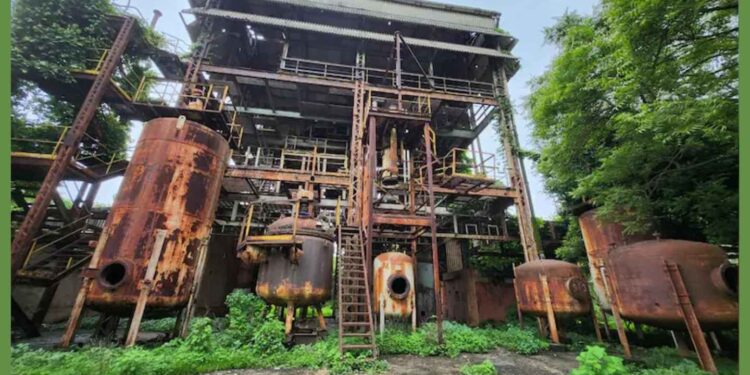40 years after the Bhopal gas tragedy, 340 metric tonnes of toxic waste was finally removed from the Union Carbide factory. The waste was removed from the factory on Wednesday night and transported to Pithampur in special container trucks. The nearly 250-km-long journey was undertaken through a green corridor. The waste reached the Ramky Environment Management Engineering (REEL) plant in Pithampur at 4:30 am on Thursday, where it is planned to be burnt safely.
The Madhya Pradesh High Court had set a four-week deadline to remove this waste on December 3, 2024. The aim behind this move was to provide relief to the residents of Bhopal from the effects of the toxicity they had been suffering for years.
Brief Introduction to Bhopal Gas Tragedy
On the midnight of 2-3 December 1984, the leak of toxic methyl isocyanate (MIC) gas from the Union Carbide factory caused devastation in the city of Bhopal. Nearly 5,500 people lost their lives and more than 5 lakh people were seriously injured. It is considered one of the world’s worst industrial accidents. The accident changed the lives of millions forever and left a legacy of health problems and environmental crisis in the city.
Government action and safety measures
Madhya Pradesh Chief Minister Mohan Yadav assured to ensure the disposal of this waste under environmental standards. He said, “Detailed studies were carried out by several organizations before this operation. Our priority is that the disposal of the waste does not have any negative impact on the air and soil.”
The Chief Minister also informed that several organisations of the Central Government have helped in this task. He made it clear that the issue will not be politicised.
Features of Pithampur Plant:
The Ramky Environment Plant in Pithampur is specially designed for safe disposal of industrial waste. In 2015, a trial of disposal of 10 metric tonnes of Union Carbide waste was conducted here, which was done under the supervision of the Central Pollution Control Board (CPCB).
Hope for Bhopal residents:
For decades, victims of the Bhopal gas tragedy were struggling with the effects of toxic waste. This action will not only make the environment safe, but will also have a positive impact on the health of the city dwellers.
Long-term health effects:
Since the tragedy, many people have been suffering from diseases like respiratory tract, eye problems and cancer. Disposal of waste will prevent these problems from worsening.
What does this move say?
Is it merely the disposal of an industrial waste, or the end of an invisible battle of 40 years? Whatever it is, this step has proved that if there is political will, even the biggest things can be done. Now the question arises, will such promptness be shown in other such cases as well?
Do you think this step is sufficient for the future of Bhopal?



